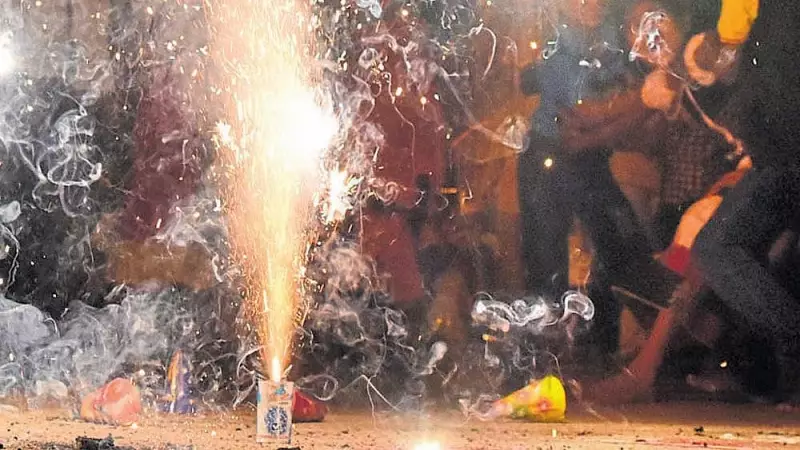
In a thought-provoking address that's stirring national conversation, former Supreme Court judge Justice A.S. Oka has raised fundamental questions about the relationship between religion and firecrackers in contemporary India. The distinguished jurist directly challenged whether bursting loud fireworks constitutes an essential part of religious practice, bringing judicial scrutiny to a deeply entrenched cultural tradition.
The Core Question: Religion or Habit?
Justice Oka's remarks cut to the heart of a long-standing debate: "Is bursting firecrackers an essential and integral part of religion?" This probing inquiry forces a re-examination of practices often defended solely on religious grounds, particularly during major festivals like Diwali.
Environmental Concerns Take Center Stage
The former judge's comments come amid growing environmental awareness and increasing concern about air quality across Indian cities. His observations highlight the tension between:
- Traditional celebrations involving fireworks
- Public health considerations regarding air pollution
- Noise pollution affecting vulnerable populations
- Legal boundaries of religious practices
Judicial Perspective on Religious Practices
Justice Oka's background as a Supreme Court judge lends significant weight to his questioning. His approach reflects the judiciary's evolving role in balancing religious freedom with broader societal concerns, particularly when traditional practices collide with modern environmental and public health considerations.
The Essential Religious Practice Test
Central to this discussion is the legal concept of "essential religious practice" – a standard often used by Indian courts to determine what aspects of religion deserve constitutional protection. Justice Oka's questioning suggests that firecracker usage may not meet this rigorous legal standard, potentially opening the door for greater regulation.
Broader Implications for Indian Society
This conversation extends beyond legal technicalities to touch upon:
- Environmental responsibility in religious practices
- Evolution of traditions in modern contexts
- Community health versus individual celebration
- Cultural adaptation to contemporary challenges
As India grapples with severe air quality issues in many urban centers, Justice Oka's intervention adds judicial authority to the call for more environmentally conscious celebrations. His remarks encourage a national reflection on whether traditions can evolve to accommodate both cultural preservation and environmental protection.
The timing of this discussion is particularly relevant as festival seasons approach, making Justice Oka's questions not just theoretical but immediately practical for millions of Indians preparing for celebrations.






